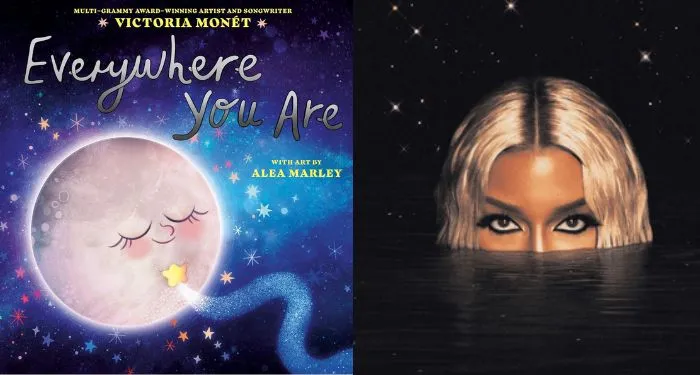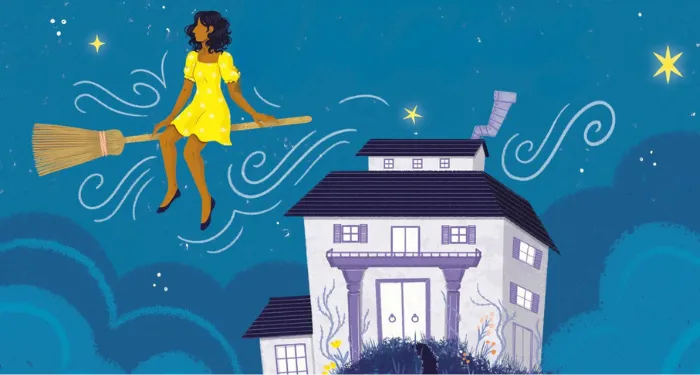This guest review comes from Lisa! A longtime romance aficionado and frequent commenter to SBTB, Lisa is a queer Latine critic with a sharp tongue and lots of opinions. She frequently reviews at All About Romance and Women Write About Comics, where she’s on staff, and you can catch her at @thatbouviergirl on Twitter. There, she shares good reviews, bracing industry opinions and thoughtful commentary when she’s not on her grind looking for the next good freelance job.
…
CW/TW violence, assault
This book contains an act of physical violence against the hero by the heroine, which doesn’t get mentioned in the author’s trigger warning list at the head of the book. It is mentioned in the book’s blurb, but for those who don’t read those closely, be warned. She also shoves him several times afterward.
It’s never a good sign when I deeply dislike a book’s main character when I’m supposed to love them. I do not have to love every single character in a romance, and I do not have to have an angelic protagonist; I like people who aren’t perfect. There are tons of so-called “unlikable characters” I adore. Unfortunately, Pen Skinner isn’t among them.
Penelope “Pen” Skinner is looking to improve her sales by appearing at Book Con. Unfortunately, her most hated enemy — rival author and former hero of hers Neil Storm – is also there, and she cannot play nice while in his presence, even though she also thinks he’s handsome.
Pen feels as if her career has suffered due to her staying true-blue to her culture and heritage, while Neil has, in a phrase, sold out to Whiteness and betrayed her idolatry. It doesn’t help her feelings of inauthenticity that she’s White-passing, biracial, and not registered with her tribe. During a panel dedicated to Indigenous horror authors, Pen lays into Neil for writing a wisecracking misogynist hero who runs around shooting arrows from a quiver strapped to his back, and for succeeding with a book title that she feels is racist (For What Savages May Be).
Neil demurs at this criticism – he declares that, as a fellow Indigenous writer, they should support each other. She suggests to Neil that he ought to write something with “real soul.” The audience disapproves, so Penelope grabs her microphone and chastises them for not accepting her ‘too native’ characters and declares she’ll write a book so good it’ll erase Neil’s name from the history books. Anyone who’s been to a sci-fi convention or even a lit convention may have witnessed similar behavior before – or at least heard of it – so none of this combativeness is terribly shocking.
When he sneers at her critique, and mentions that yes, he had to make some changes to his original manuscript to get published because it’s hard enough out there for him already, I was ready to side with Pen.
It’s then that she throws the only copy of her only novel — The Lies They Told Us — directly at Neil’s head and hits him in the temple. So hard that she draws blood, and leaves a scar behind.
Pen admits she’s a little tiny bit ashamed of herself for drawing blood, but she thinks Neil deserved it. She still thinks he’s hot, tho. Her main thought? She is alone. So very alone.
After an opening like this, it’s heavy sledding to make an audience believe in the romance that’s supposed to follow, and, oh, I could not believe in it.
Four months later, Pen’s career is unsurprisingly on the skids after her Book Con meltdown. This is, in her opinion, All Neil’s Fault for not immediately agreeing that he’s shit for not fighting his publisher’s edicts and living up to her hero worship and I guess…not saving her from herself?
On top of that, she can’t force herself to write a single word. She is a pariah, and only her writer friend Laszlo Morgenstern keeps in contact with her. He’s the one who charms her into going to a private retreat in Archibald Castle in Edinburgh, Scotland. Pen meets Laszlo’s mischievous sister, Daniela, and Laszlo there. She doesn’t know that the plan has changed: Laszlo had originally decided to go to the retreat with Neil, invited Pen when he canceled — and is now stuck taking both of them when Neil uncancels.
Neil has had a change of heart about Pen’s opinion about his work, and also now finds her as hot as she finds him – in a scarousing way. Seriously, the number of times Neil remarks upon how Pen looks “almost excited and eager” to see him get hurt is fascinating. But he, too, is suffering from writer’s block, so away they go.
Together, they and the siblings head to a castle which is rumored to be haunted. They meet Fanny, who owns the place, and her odd behavior has them nervous. They’re soon all snowed in together, which ratchets up the tension between Pen and Neil — and locks them into a single location with some ghosts which seem to want to kill them. But only Pen and Neil can see them.
If I Stopped Haunting You sinks like a stone due to its heroine. Pen is almost hilariously self-pitying, childish and self-centered. She reads like she’s sixteen and is supposed to be twenty-nine. She refuses to take accountability for what she did with her willful tantrum.
Show Spoiler
…And the narrative later confirms her feelings about being an ignored genius who could take the horror world by storm, because Neil agrees with her assessment about her own work and eventually gives her the opportunity she thinks she deserves, even though she scarred his head.
To wit:
“It’s easy for men in the publishing industry. You make mistakes, you say the wrong thing, and most of the time you don’t get canceled.” She gestured to him, sharp and meaningful. “And there you were, sitting up there on your little throne, leaning toward your mic, telling me I would never be as good as you. Even if I was right – “
“You’re not right,” he said automatically.
She smiled and Neil’s guts twisted
“Aren’t I? You have so much power in your position. You know what the industry does to voices like ours, and when I called you out, what was your first instinct?” She leaned forward, and Neil found himself frozen under her scrutiny. “You and I could have spent this entire time working together to strengthen our positions in this genre but you never cared. And there you were, sitting with your glowing stack of books before you, and all I had was my measly copy of my one and only, and I just…”
She mimicked throwing it and he flinched, extending his fingers on instinct to smooth over the small scar above his brow.
Yikes. They have at least five conversations like this, going through the same territory over and over again. Neil wants to push back but feels trapped; Pen justifies her actions, thinks he’s a coward because he doesn’t want to risk it all on authenticity, and thinks she deserves special treatment as a writing partner, even though they barely knew each other when the book incident happens
Until Neil promptly agrees to Pen’s accusations, saying that he should have worked harder with his editor and pushed back more, the rondelay doesn’t end. Then they become wrapped up in their passion for each other soon afterward. Pen later reads the original manuscript of Neil’s novel, and it proves that he really was trying to tell a different story. She’s remorseful, but that proves her original reason for attacking him was faulty and she really should have trusted him at his word and supported him.
Hoo boy. At least Pen admits — too little and too late at the end of the book — that she was driven by her jealousy of him. But she comes off as a bully, and I hate to say that about a fellow marginalized woman and an Indigenous female character.
The problem is that Pen is unquestionably at fault for ruining her own life, because she was the person who didn’t hold her temper. She sank her own career by having a meltdown and committing violence against someone in public. Her frustration in being marginalized due to racism is completely understandable! Every author probably has a genius-tantrum about how they are better than Stephen King now and again. If she’d kept it to her words, this would have been a completely acceptable conflict for me. But she physically scars him. Romantic?!
The pacing here is also terrible. 49 pages into the book, Neil and Pen go from loathing each other to wanting to bone. Pen has spent months blaming this man for the constant hellscape in which she lives, but the second he brushes a hand against the crotch of her jeans (literally), she’s good to go. The passing mentions of Pen’s buried admiration for Neil and Neil’s sudden attraction to Pen attempt to soften this abrupt change, but no, nothing computes and the sense of space and time here needed to be adjusted for me to believe the switch. It seems to take forever to get to the castle, but once we’re there the plot mercifully speeds up.
And then there’s the matter of the sex scenes:
CW: body horror
Why do Neil and Pen go from being horrified by the sight of maggot ridden bodies and other calamities to immediately wanting to bone against a wall or a door or the nearest surface? Are they secret necrophiles? I would not mention this if it happened once, but it happens several times. This on top of Pen describing her sticky underwear after having a wet dream about Neil made the sexual goings on here slow going for me.
The only reason this isn’t a rant review is that the horror portion of the novel is wonderfully creepy and atmospheric, with creaking doors and chilly floors and horrifyingly gristly visages and blood leaking from the rafters. I was also involved in the particular ghosts at the center of the mystery, Archie and Georgina, partly because they aren’t at each other’s throats. They don’t throw objects at each other, even when they’re completely transparent. And I liked how the entire cast worked together to solve the haunting of the castle.
If I Stopped Haunting You honestly makes me want to track down Colby Wilkens’s horror novels, because the horror part of this story was amazing. The rest of it, though, was hampered by too much repetition, too many circular conversations litigating the same issue, and, above all, way too much abhorrent behavior made worse by lack of true attempts to make amends. Pen didn’t seem to take responsibility nor did she acknowledge the depth of her mistake, which undermined the effort to rehabilitate her character as a romantic lead.
I didn’t enjoy this romance. And yes, Pen, it’s definitely your fault.



















 English (US) ·
English (US) ·